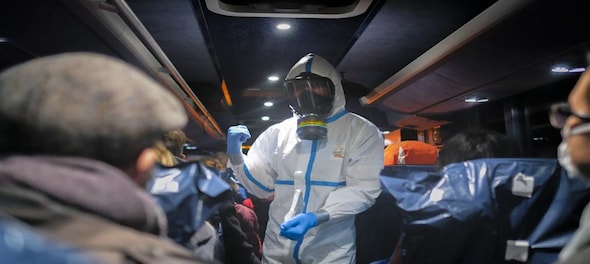
Confirmed cases of the coronavirus outbreak in China’s Wuhan have crossed 24,000 and the death count is now well over 400. The virus has spread across in geographical boundaries even though the count is still lower in countries other than China.
Air India and IndiGo — the Indian carriers that operate in China — have said they have withdrawn services completely to mainland China. They have also pulled out of Hong Kong. The Indian government has cancelled all e-visas for Chinese and banned all India bound airlines from boarding any passengers from China.
The India–China market has been dominated by Chinese carriers, which operate their full quota of flights under bilateral rights, and by airlines from Thailand, Malaysia and Singapore that offer one-stop connections. Cathay Pacific and Cathay Dragon also serve the Chinese market via Hong Kong.
Chinese aviation has grown multi-fold between 2003 and 2020. Chinese investments and outbound tourism have been very strong in South East Asia.
Carriers in the region such as Thai AirAsia, AirAsia, VietJet and Lion Air group have thrived on Chinese tourists visiting the region in large groups and year-round. The visa-free regime with most countries has helped as well.
Impact of spreading virus
Indian carriers have long had capacity deployed to South East Asia, with Thailand a popular destination with Indian tourists. In the last couple of years, carriers from India have operated flights to South East Asia. Bangkok is connected to Delhi, Mumbai, Bengaluru, Chennai, Kolkata, Mumbai, Varanasi and Ahmedabad by Air India, Vistara, IndiGo and Spicejet, while IndiGo and Go Air also fly to Phuket.
IndiGo also flies to Kuala Lumpur in Malaysia from Delhi, Bengaluru and Chennai. Singapore is served by Air India, Vistara, IndiGo and Go Air, with these carriers connecting the city-state to eight destinations.
GoAir has already waived off cancellation charges for its flights to Bangkok, Phuket and Singapore in view of the current situation and others are likely to follow suit. IndiGo, India’s largest carrier by fleet and market share, and SpiceJet operated 10 percent of their total departures on the international sector in November. GoAir had 8 percent of its departures on international sectors.
These numbers includes flights to all international destinations with all three low cost carriers having a larger exposure to Middle East than South East Asia, further reducing the impact.
Can the crisis come home?
Kerala, where India's three confirmed cases have been reported, is a winter destination for foreigners and may not have much impact yet for foreign tourists. While the World Health Organization has declared coronavirus a public health emergency, India has stayed relatively unaffected.
While there will be an impact on business due to fewer number of foreigners coming in this part of the world, it may not impact the airline industry on the domestic front immediately.
The silver lining
There cannot be a silver lining in any epidemic, especially if it is in the neighborhood but there has been a considerable drop in oil prices due to reduced demand from China. Coupled with the rupee remaining steady, the cost of operations for the airlines in India will go down. Fuel comprises the largest single chunk of expenditure for airlines in India and any drop in prices helps the airlines — which are already operating at margins as thin as a boarding pass.
Airlines also have dollar denominated expenditure linked to leasing costs and maintenance amongst others and a steady rupee will help keep costs in control. Rupee was pegged at 63.5 to a dollar in January 2018 and has since slid to 71.5 last month.
The fourth quarter of the financial year is traditionally weak with exams and reduced discretionary travel between January and March before travel picks up again from April until monsoon. The reduction in oil prices will help airlines report a positive result in this financial year after a not so good second quarter even after the fall of Jet Airways.
While capacity reduction by IndiGo to China will not free up many aircraft, it could help cover up for some groundings due to engine issues as it sprints to complete the engine changes in line with DGCA regulations.
A fluid situation like this could see changes on a daily basis, but unlike the Thai, Malaysian and other regional carriers, airlines from India seem to be in a position to tide over the crisis, even if it lasts as long as the SARS outbreak.
First Published: Feb 6, 2020 12:11 PM IST
Check out our in-depth Market Coverage, Business News & get real-time Stock Market Updates on CNBC-TV18. Also, Watch our channels CNBC-TV18, CNBC Awaaz and CNBC Bajar Live on-the-go!


Lok Sabha polls: Polling time in Telangana increased by an hour, here's why
May 2, 2024 6:55 AM
Prajwal Revanna Sexual Assault Case: Activist raises concerns over political interference, delayed investigation in the matter
Apr 30, 2024 10:17 PM
Lok Sabha Election 2024: Baramati election outcome will decide the future of Pawar dynasty, says expert
Apr 30, 2024 10:08 PM
Lok Sabha elections 2024: Baramati to Mainpuri, key battles in phase 3
Apr 30, 2024 7:01 PM

